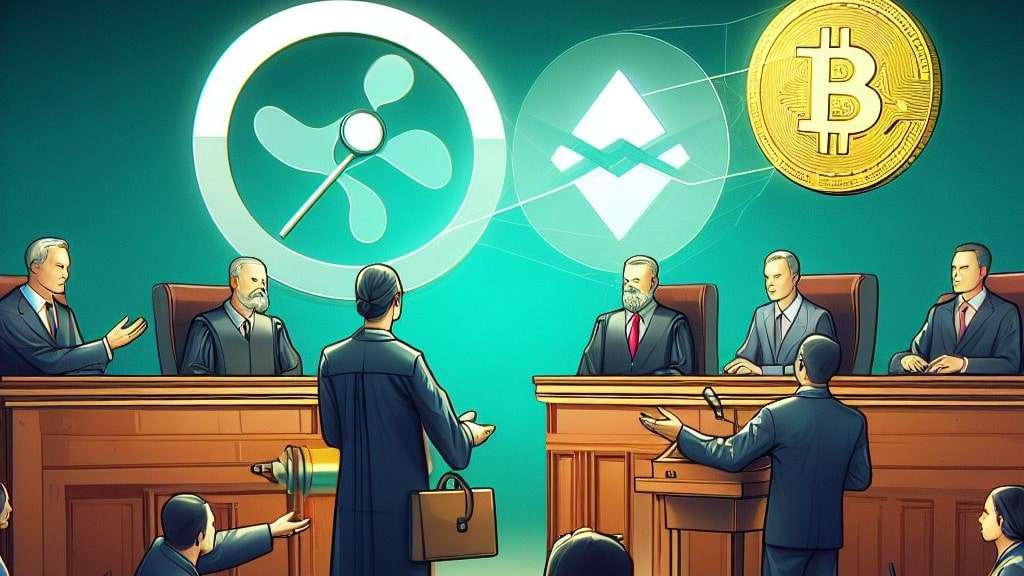
In a significant development within the cryptocurrency industry, Circle, the company responsible for issuing the USD Coin (USDC) stablecoin, has entered the legal battle between the United States Securities and Exchange Commission (SEC) and the crypto exchange Binance. The core of Circle’s argument revolves around the classification of stablecoins as securities. This legal clash has far-reaching implications for the crypto sector, and its outcome could shape the regulatory landscape for years to come.
Circle’s Argument: Stablecoins Are Not Securities
In a recent court filing, Circle has presented a compelling argument against the SEC’s claims that certain cryptocurrencies, such as Binance USD (BUSD) and its own USDC, should be treated as securities. A central pillar of Circle’s argument is that individuals purchasing these stablecoins do not do so with the expectation of making a profit. According to Circle, payment-oriented stablecoins lack the “features of an investment contract” and should not be considered securities in their own right.
The SEC’s Case Against Binance
The SEC’s case against Binance, which began on June 5th, revolves around a series of alleged legal violations. The regulator has leveled 13 charges against the crypto exchange, including the sale of Binance Coin (BNB) tokens and BUSD tokens without proper registration. The SEC contends that Binance’s stablecoin offering constitutes an unregistered security. Additionally, the SEC has accused Binance of failing to register as a broker-dealer clearing agency and operating illegally within the United States.
Binance’s Response and Legal Dispute
On September 22nd, Binance, along with its CEO Changpeng Zhao, filed a petition seeking the dismissal of the SEC lawsuit. Binance and Zhao’s legal team argue that the SEC has exceeded its authority by pursuing this lawsuit. They assert that the SEC failed to provide clear regulatory guidelines for the cryptocurrency sector before initiating legal action against Binance, effectively imposing its authority retroactively.
Expanding SEC Scrutiny Beyond Stablecoins
The SEC’s involvement in the cryptocurrency space extends beyond stablecoins and crypto exchanges. The regulatory body has also taken an interest in nonfungible tokens (NFTs) and has ruled that certain NFTs should be classified as securities. For instance, on August 28th, the SEC filed charges against the entertainment company Impact Theory for the sale of its NFT collection, deeming these NFTs to be unregistered securities.
Another case involved the SEC’s action against a firm associated with the Stoner Cats NFT collection on September 13th. According to the SEC, this firm facilitated the sale of unregistered securities by offering NFTs to the public.
The Broader Implications
The ongoing legal dispute between the SEC, Binance, and now Circle has far-reaching implications for the cryptocurrency industry. At its core, the debate centers on how cryptocurrencies, stablecoins, and NFTs should be categorized and regulated. The outcome could potentially set a precedent for future regulatory decisions in the United States and around the world.
For cryptocurrency enthusiasts and investors, this legal battle raises questions about the future of stablecoins and their role in the digital economy. If the court sides with the SEC, it could lead to increased regulatory oversight and potential restrictions on stablecoin usage, impacting their utility for everyday transactions.
Moreover, the broader crypto industry is closely watching this case, as it could set a precedent for how regulators approach the rapidly evolving landscape of digital assets. A ruling in favor of the SEC could signal a more assertive regulatory stance, while a verdict favoring Binance and Circle could provide greater clarity and flexibility for crypto projects.
Conclusion
The legal dispute between the SEC, Binance, and now Circle represents a critical moment in the evolution of the cryptocurrency industry. It raises fundamental questions about the classification of stablecoins, NFTs, and other digital assets and their regulatory status. As the case unfolds, it will undoubtedly continue to capture the attention of crypto enthusiasts, investors, and industry participants eager to see how the regulatory landscape for cryptocurrencies takes shape.



Get the latest Crypto & Blockchain News in your inbox.